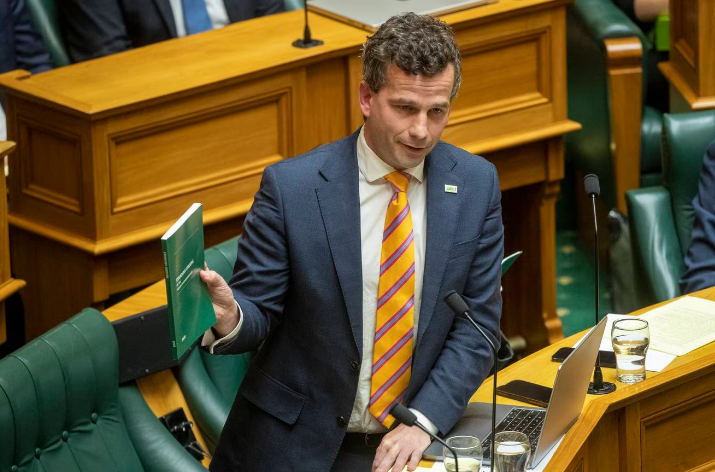
Seymour used today's debate, granted by Speaker of the House Adrian Rurawhe, to both pay homage to Allan as a person but also to highlight other ministers that had resigned or been demoted, which forced Rurawhe to stop him for drifting too far from the debate’s topic - the resignation - because he was using his time to criticise the Government.
Greens MP Golriz Ghahraman called it “shameful” Seymour felt the need for a debate, Labour Māori caucus co-chairman Willie Jackson was saddened Allan’s mental health was being politicised, and Te Pati Māori co-leader Rawiri Waititi said the debate was “narrow-minded”.
They found an uncommon ally in New Zealand First leader Winston Peters, who said it was “shocking” to have a debate about Allan.
“There are times when some things should not be politicised - this situation with Kiri Allan should be one of them,” he wrote on social media.
Allan this afternoon confirmed she would not contest the East Coast electorate at the October 14 election in light of losing her ministerial portfolios after being charged with careless driving and refusing to accompany police after she crashed her car in Wellington on Sunday night.
Allan, who made the announcement on social media today, has returned home to “heal and chart a new course” for her life and would appear in court at a later date.
Prime Minister Chris Hipkins today clarified that Allan would not have returned as a minister under his leadership, citing the unacceptable situation of a Justice Minister facing charges.
Seymour, who spoke first in the debate as he’d requested it, quickly shifted from Allan to detail the various ministers who had left Labour in recent months, including Stuart Nash, Michael Wood and Meka Whaitiri.
“We now have a Government that has no more gas left in the tank,” he declared.
“People are right to ask: how can a Government so incapable of managing itself be asked to manage the many problems that New Zealanders face?”
As he attempted to reference today’s gang-linked Auckland food court fight, Labour’s Grant Robertson objected and was backed up by Rurawhe, who warned Seymour about being “disrespectful” to the House in the topics he traversed.
Seymour continued, linking the “tragic sequence of events” to the quality of the workplace and saying Act would ensure a higher quality if in government.
He did end with a personal message to Allan, recognising her as a “good person” with “great intelligence and capability”.
Robertson, renowned for his witty lambasting of the Opposition in the House, was notably reserved in his speech and kept his comments largely to Allan and his hope she was faring well.
He did impress upon those in the House that thought should be given to how the Parliamentary workplace could be improved to become more friendly to a greater range of people.
“I think we can do better, Mr Speaker, and I do include myself in that, along with everybody else.”
National’s Paul Goldsmith, Mark Mitchell and Penny Simmonds all spoke in the debate, with the latter two being pulled up on straying from the debate’s topic with the intention of criticising the Government.
Jackson admitted Allan’s struggles had been personally challenging for him, as he’d spoken with the East Coast MP hours before her crash. He said Allan had called him, saying she was lonely and wanted to get kai.
Jackson wasn’t in Wellington at the time but thought there were no apparent warning signs that Allan would later do what she did.
Jackson spoke of how his uncle, the late Moana Jackson, had introduced him to Allan and raved about her potential.
He said it was sad Seymour had turned the matter political, but Jackson was confident Allan would return.
“She has been a leader for Māori, she has been a leader for her community, and she is revered right across the spectrum. She will be back.”
Ghahraman, who was regularly vocal about improving Parliament’s environment, ended her impassioned speech on mental health to say it was “shameful” of Seymour to request the debate.
“That’s not what New Zealand wants - that is what calls the competence of us as politicians into question.”
Waititi believed the debate was “narrow-minded” and Allan was “only one casualty among a long line of people who have suffered from the misogyny of this Parliament”.
“This place is unsafe - more so for Māori, and more so again for wāhine Māori.”












